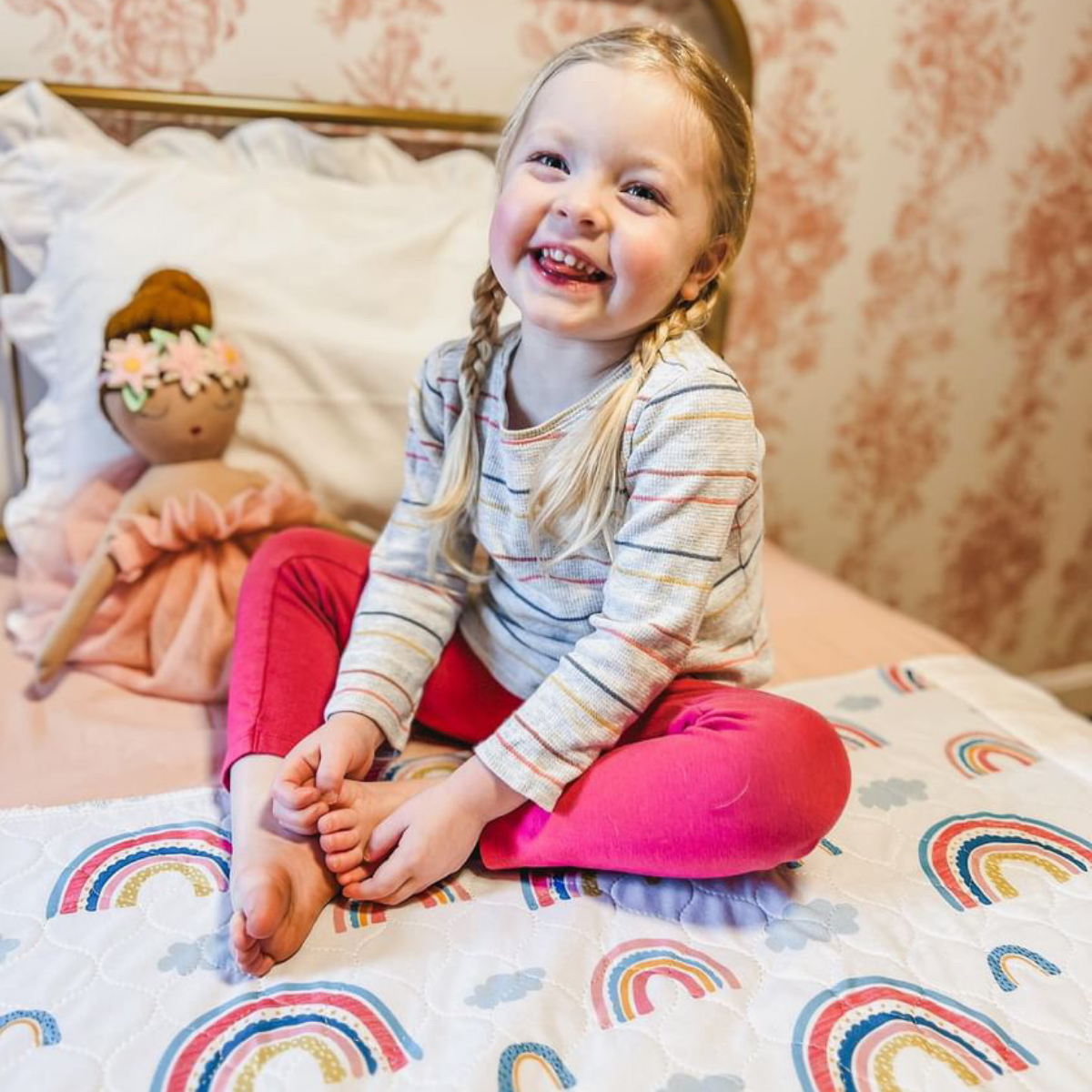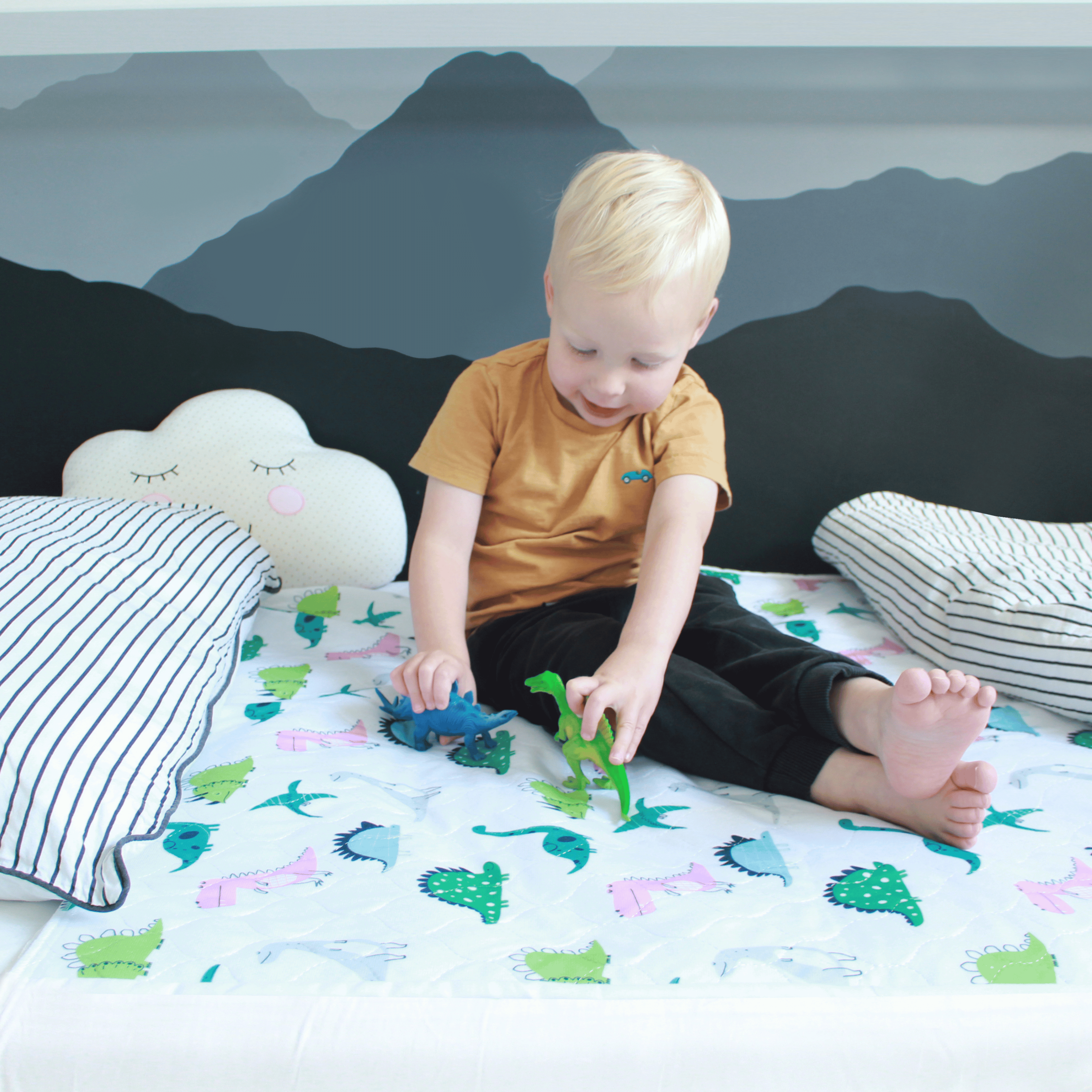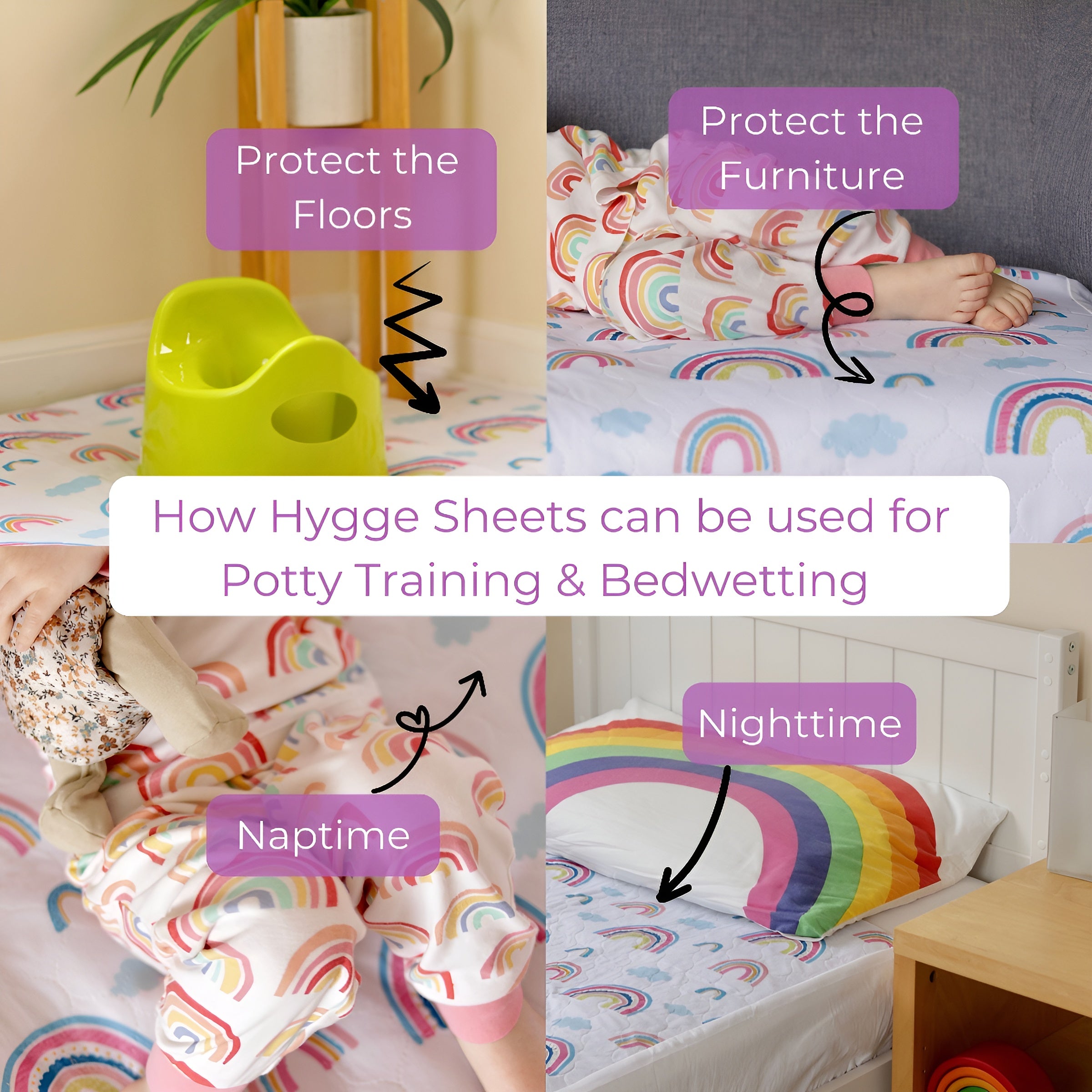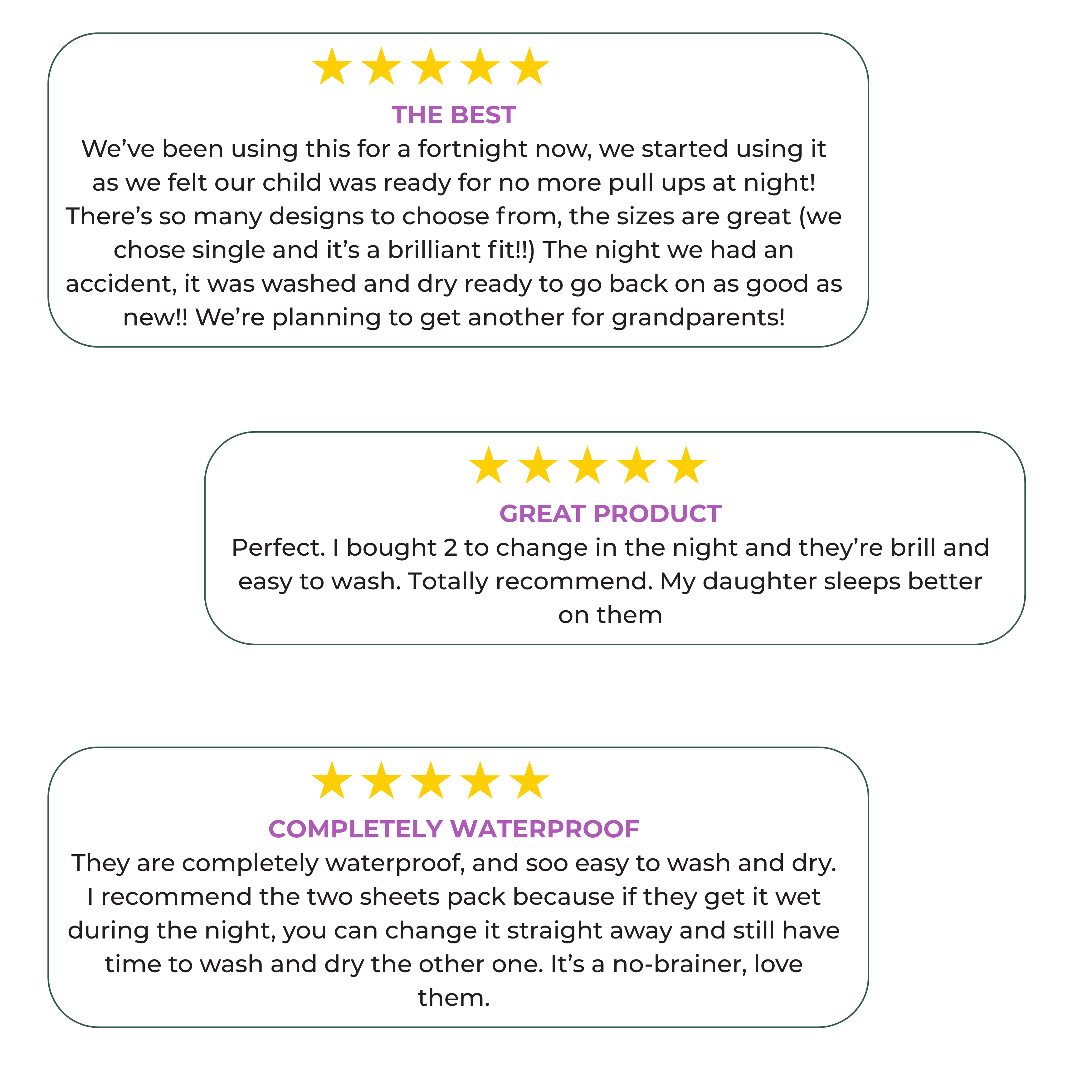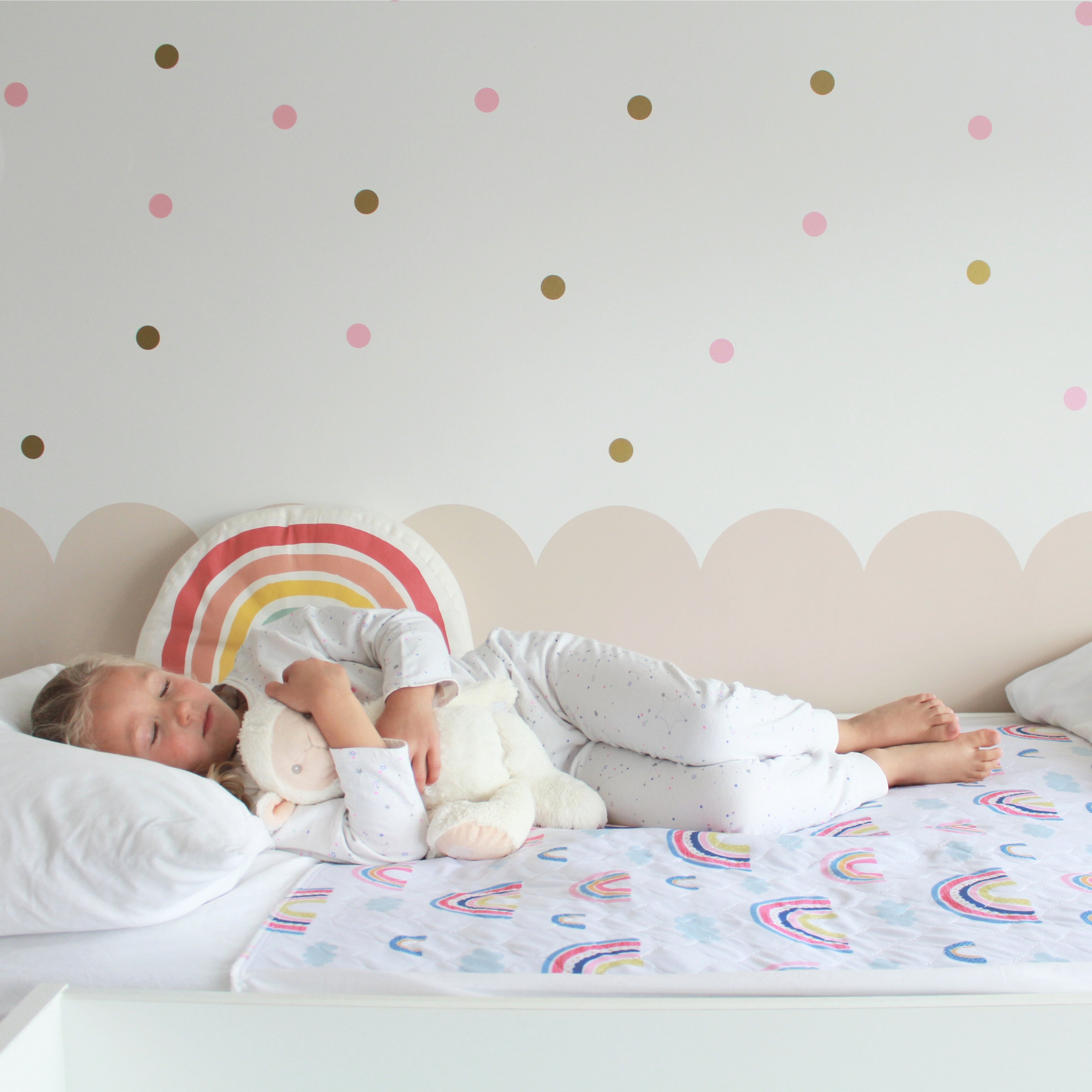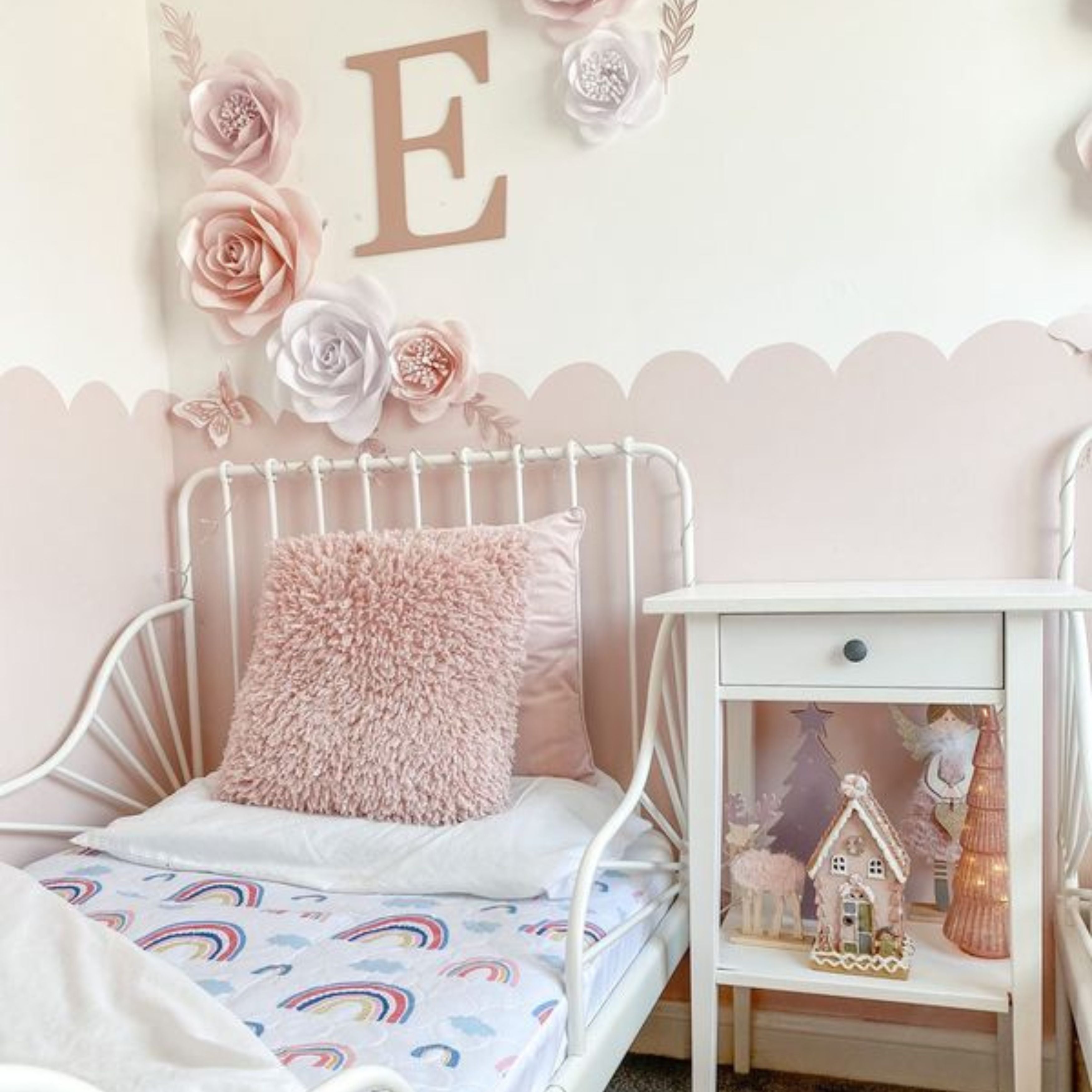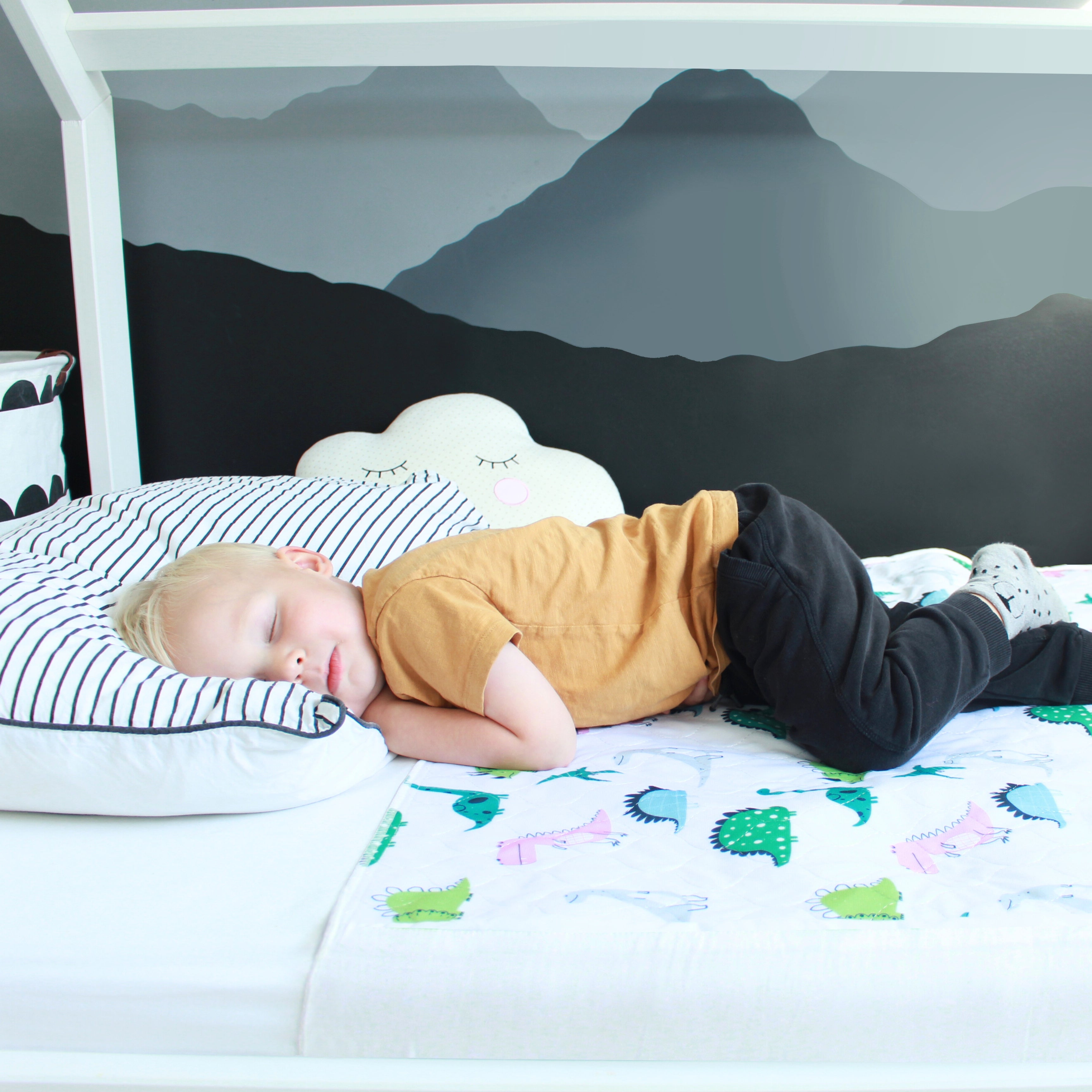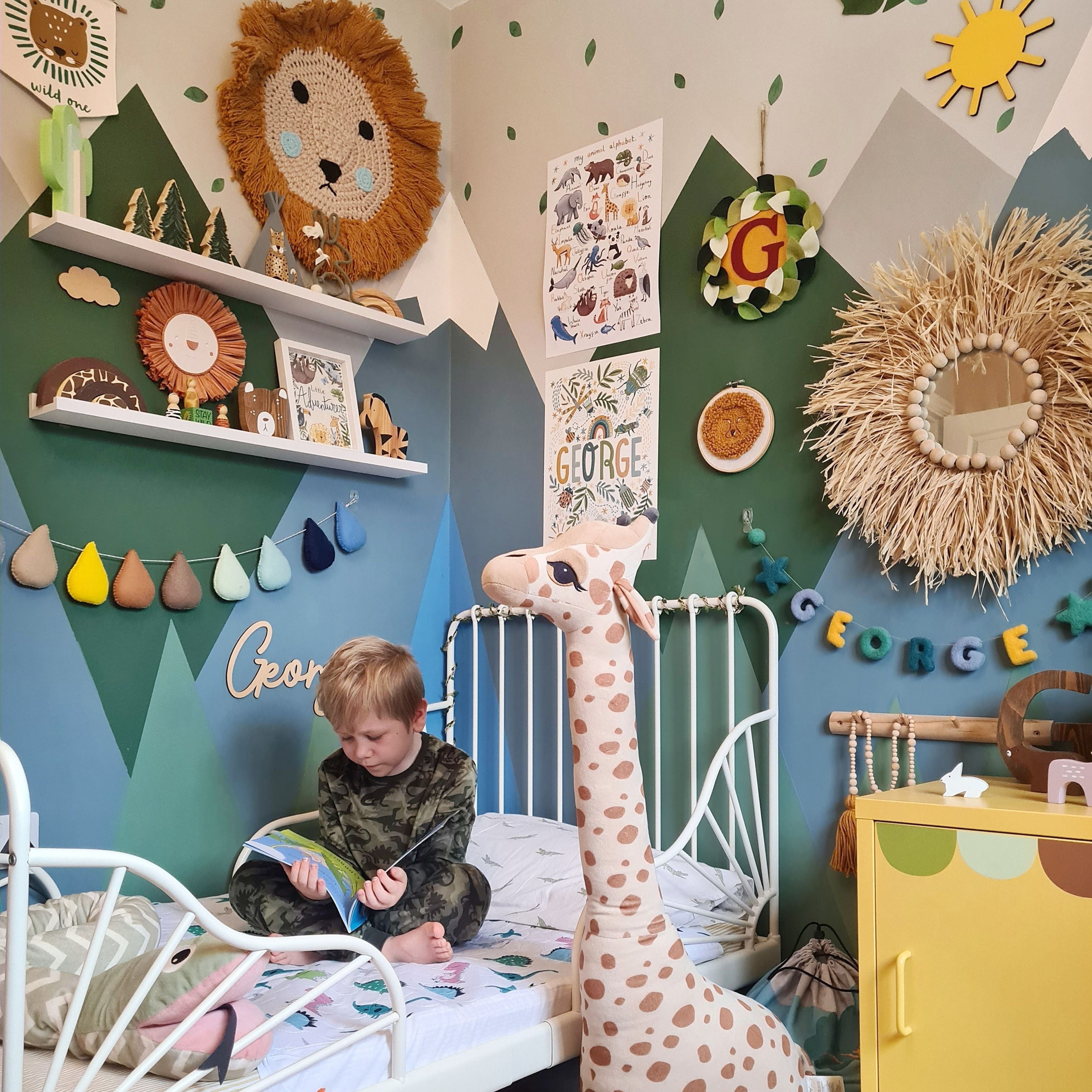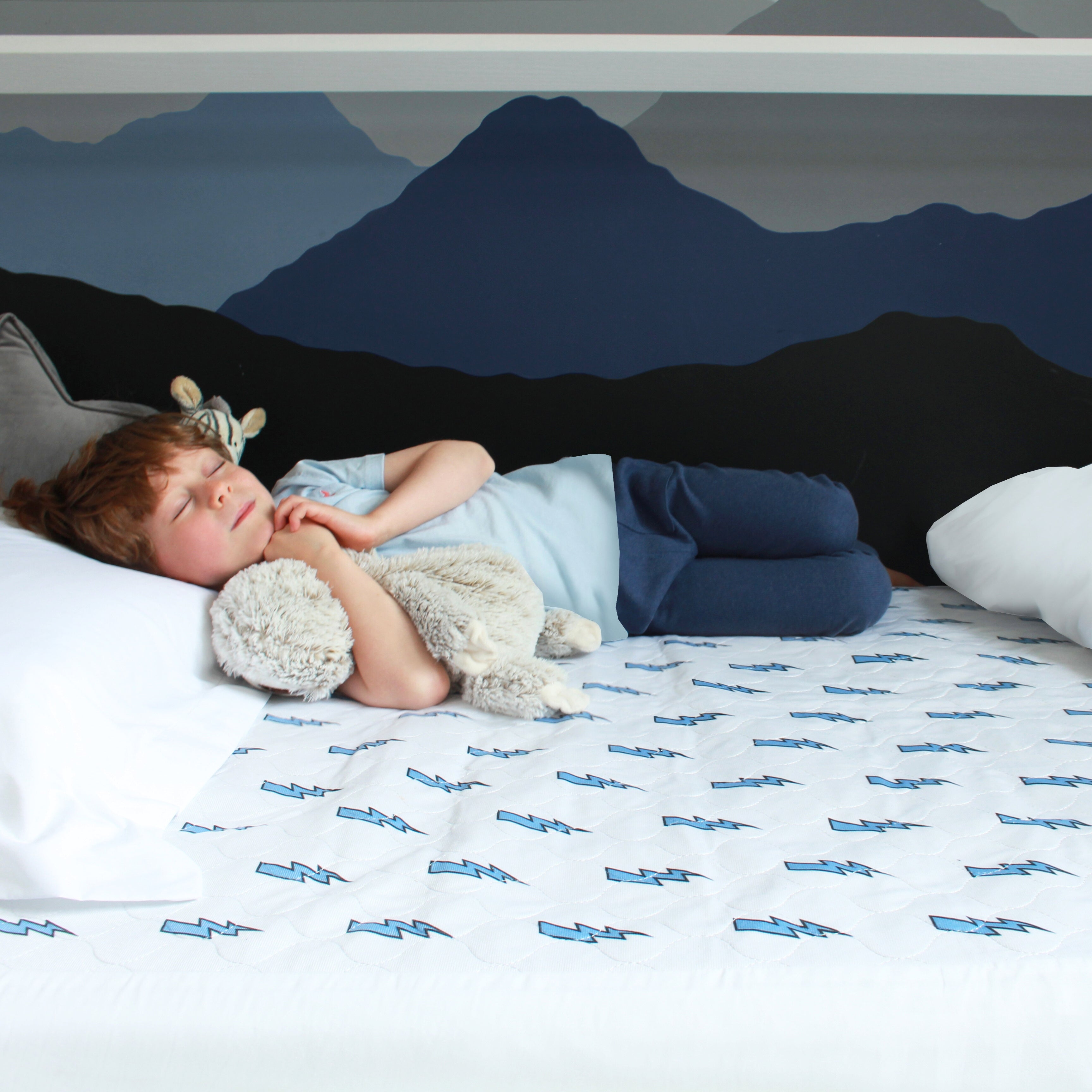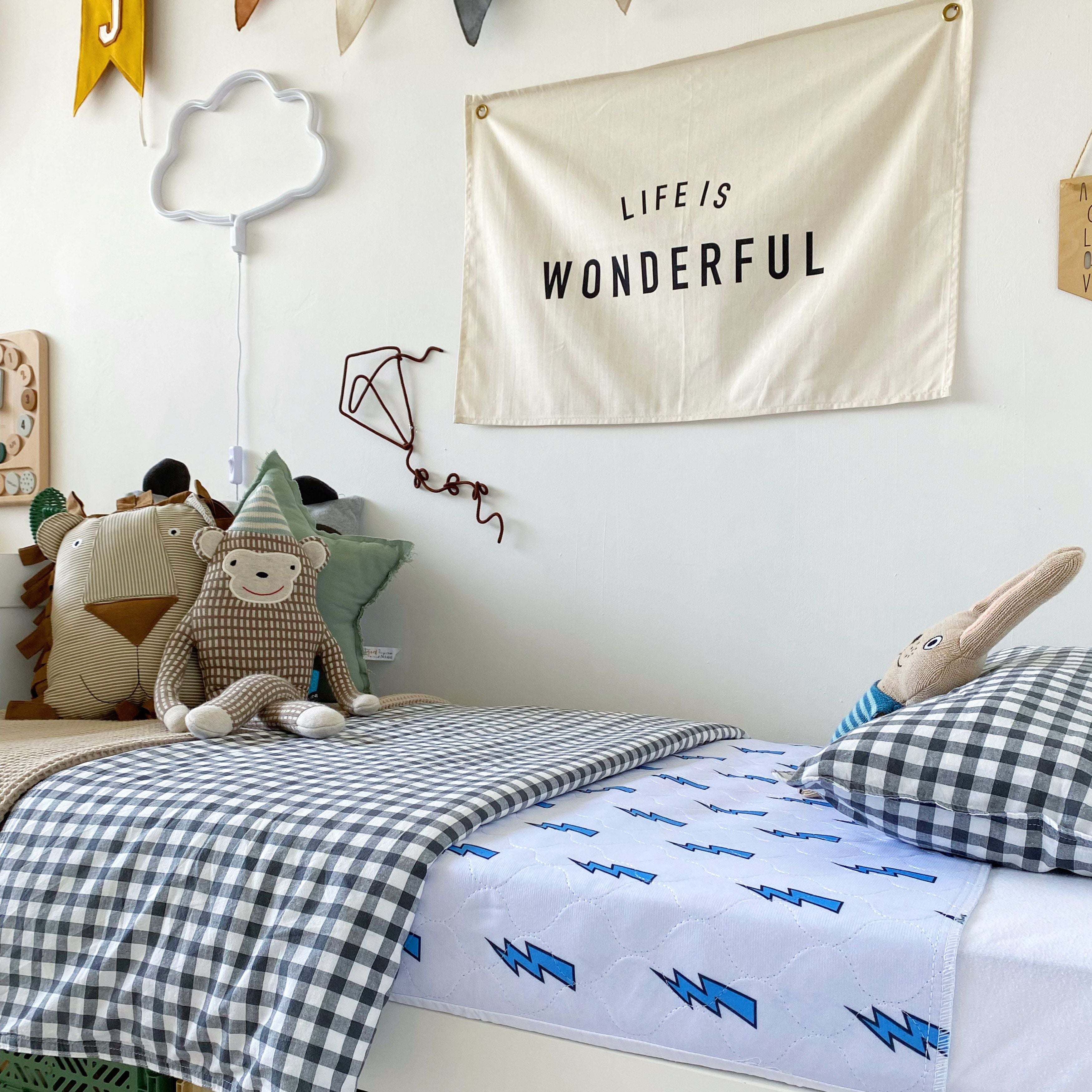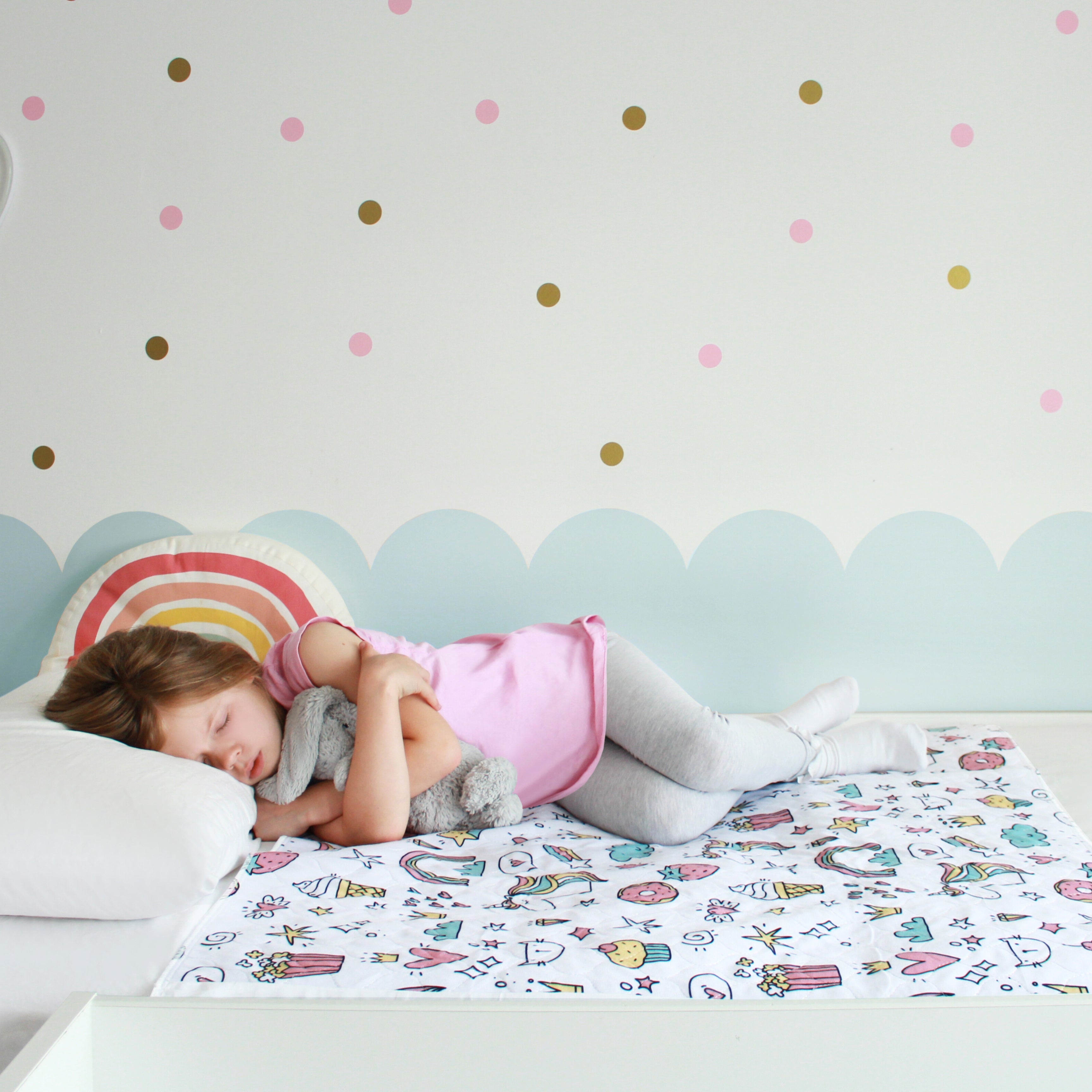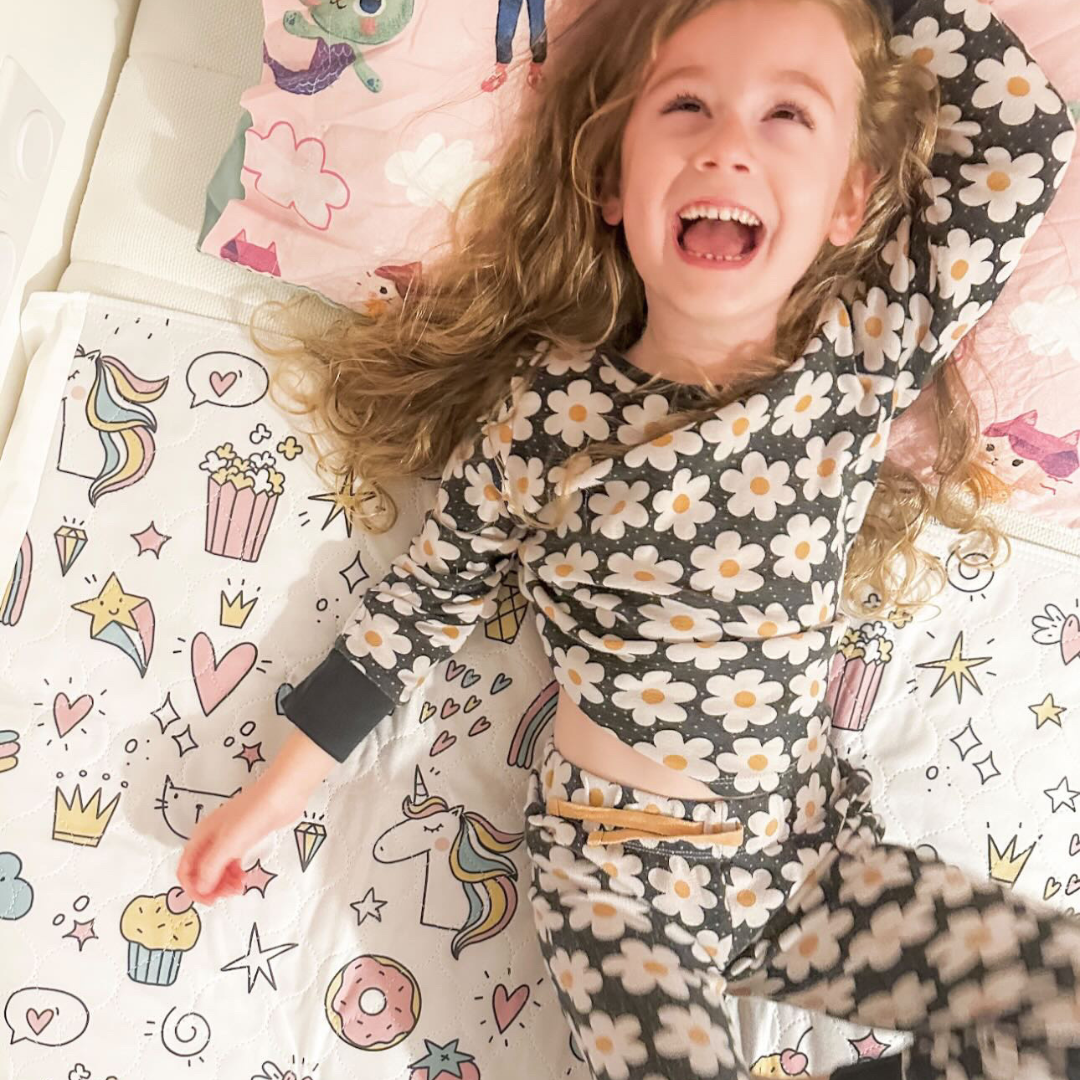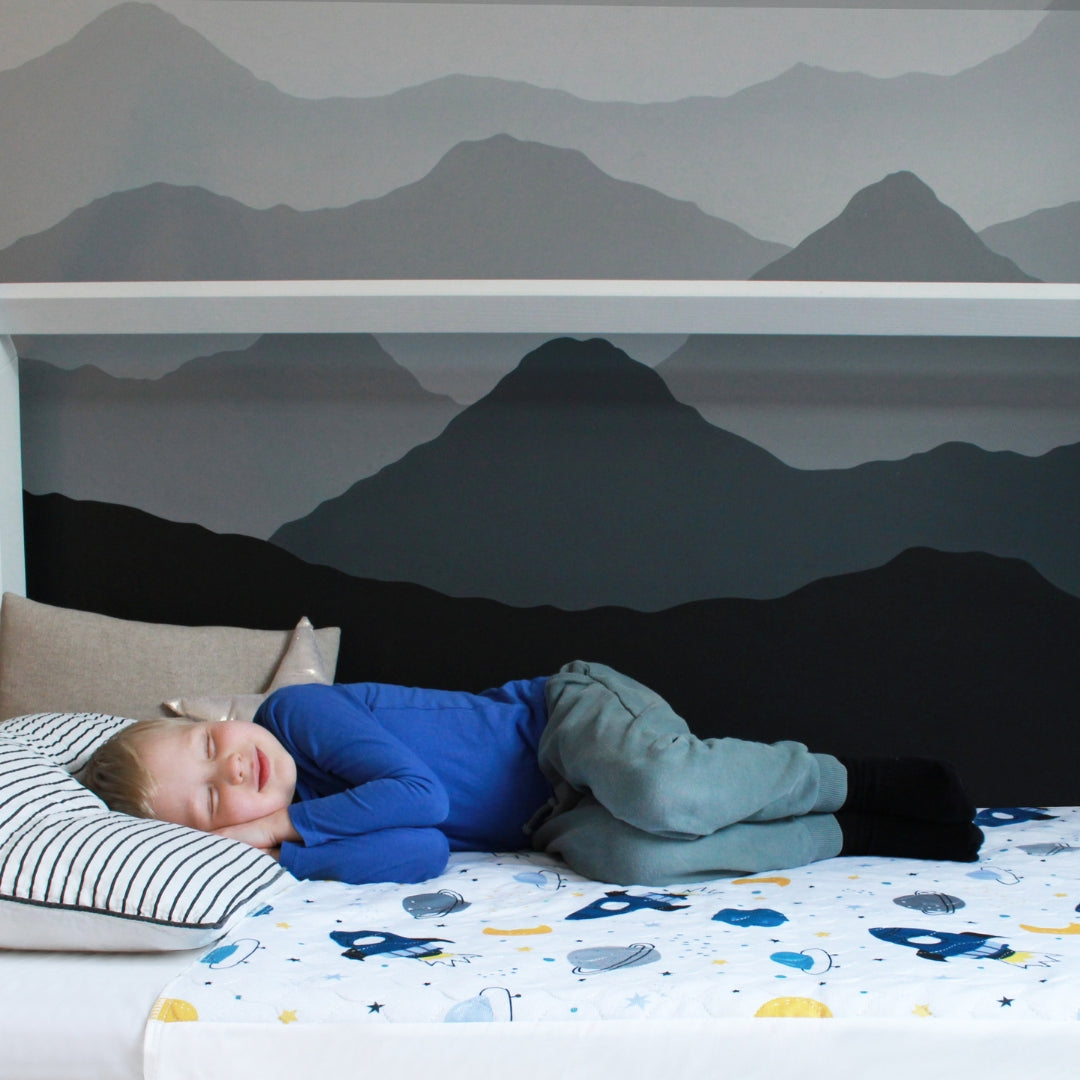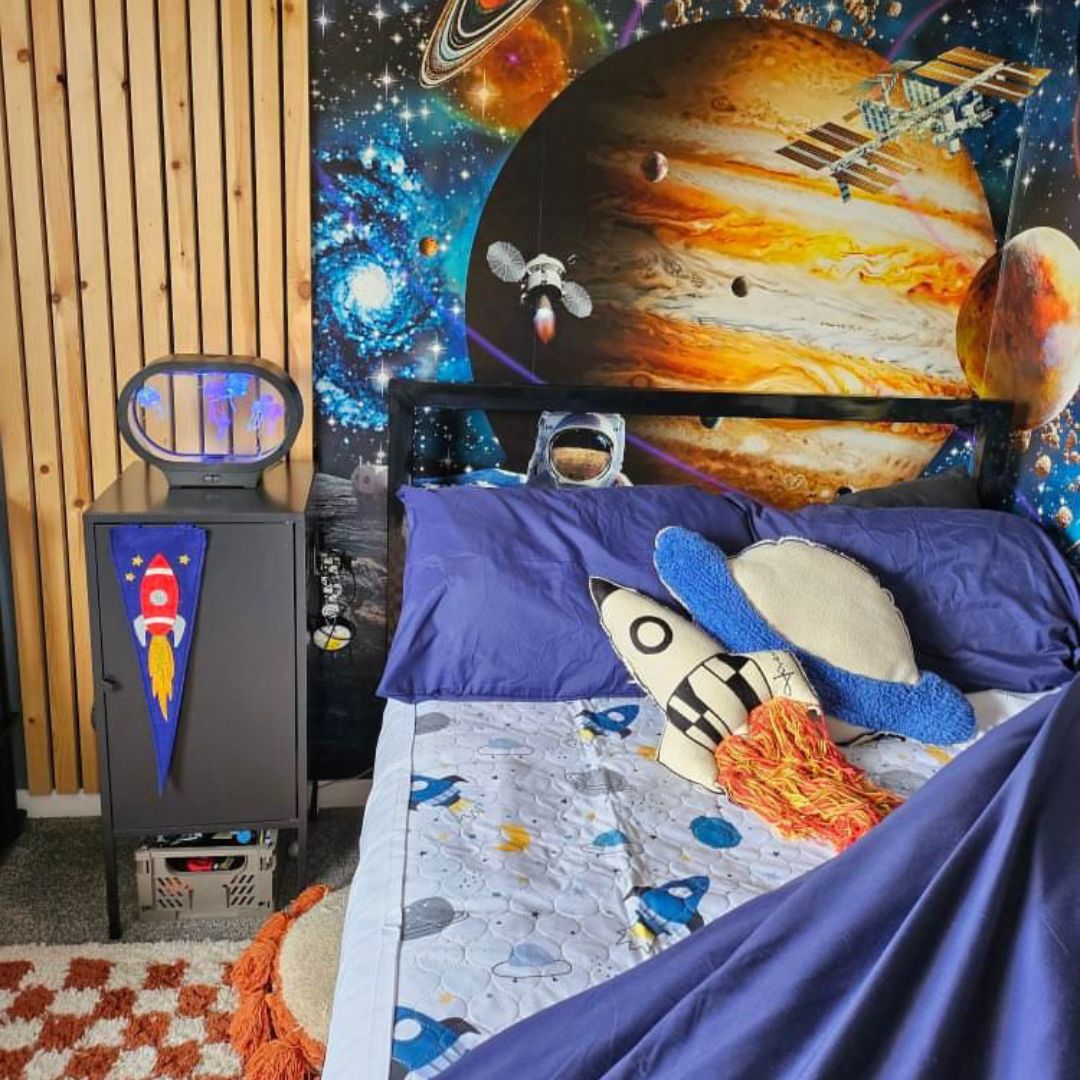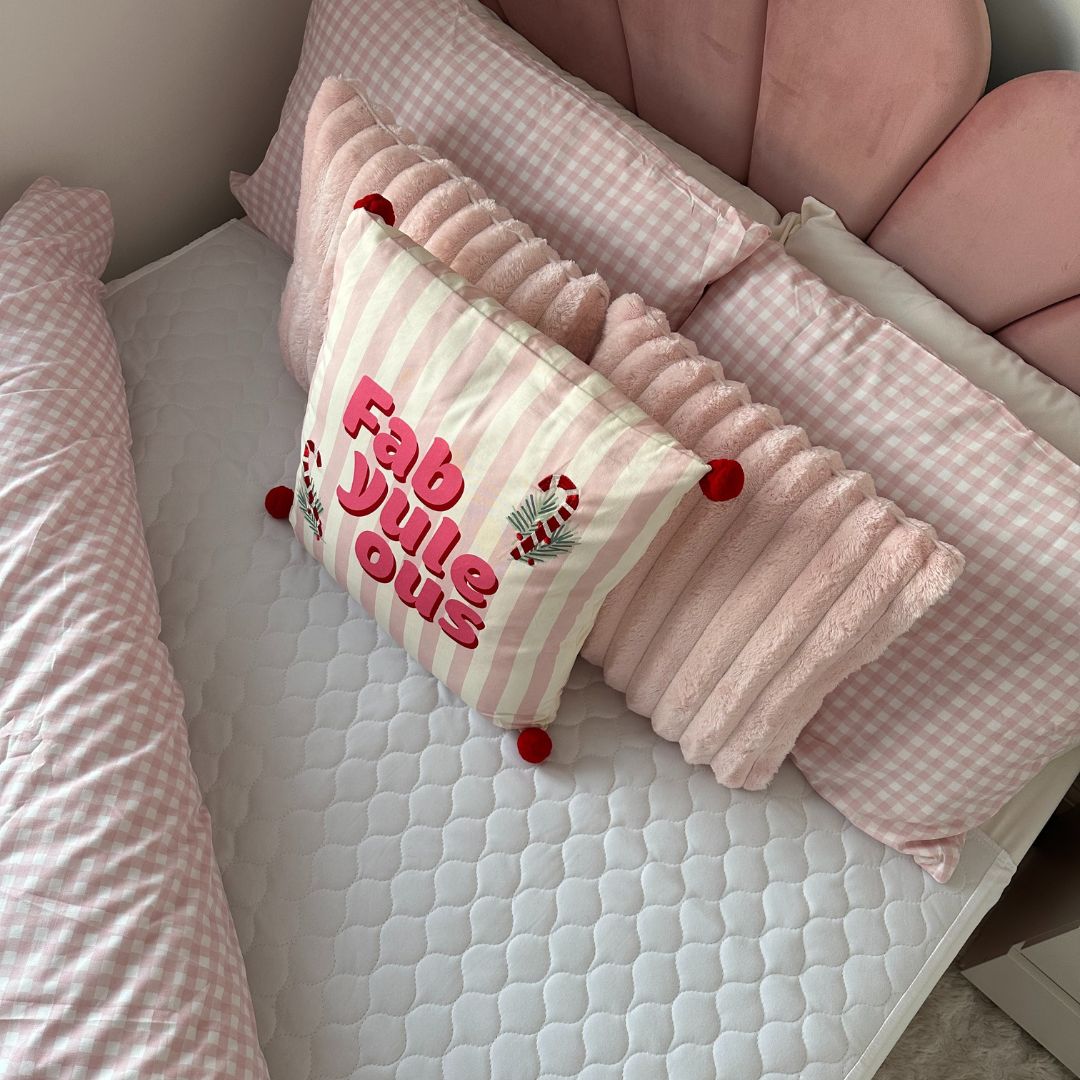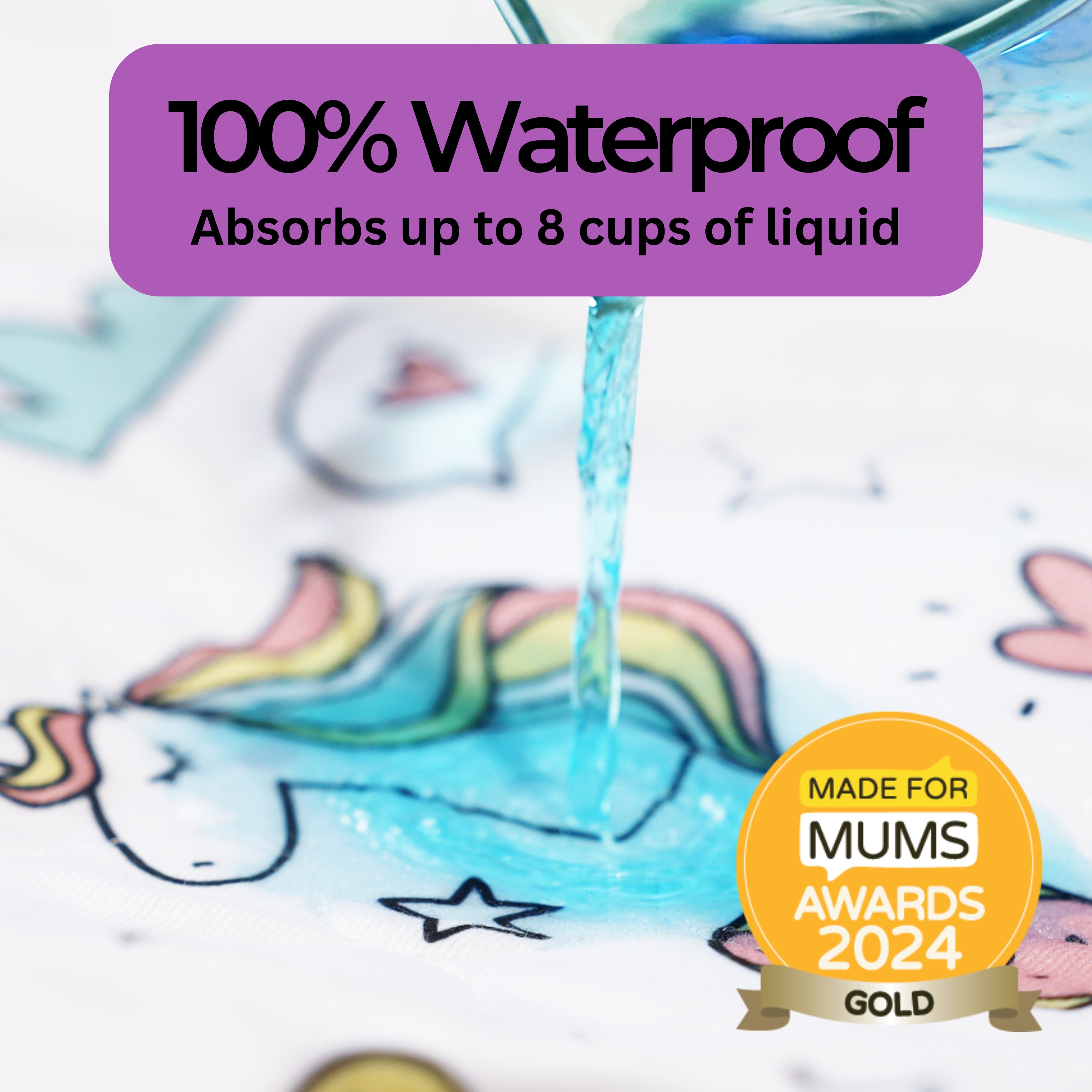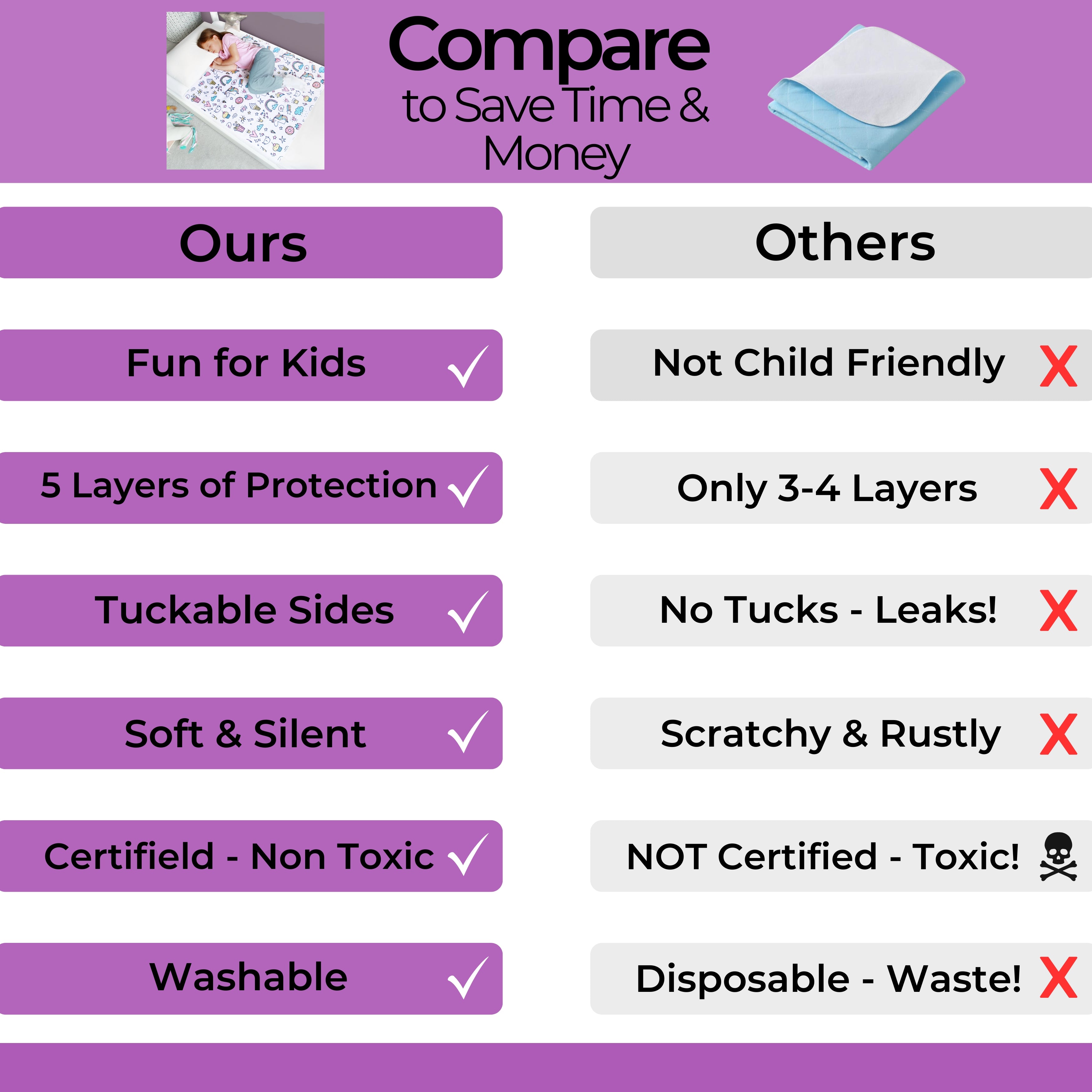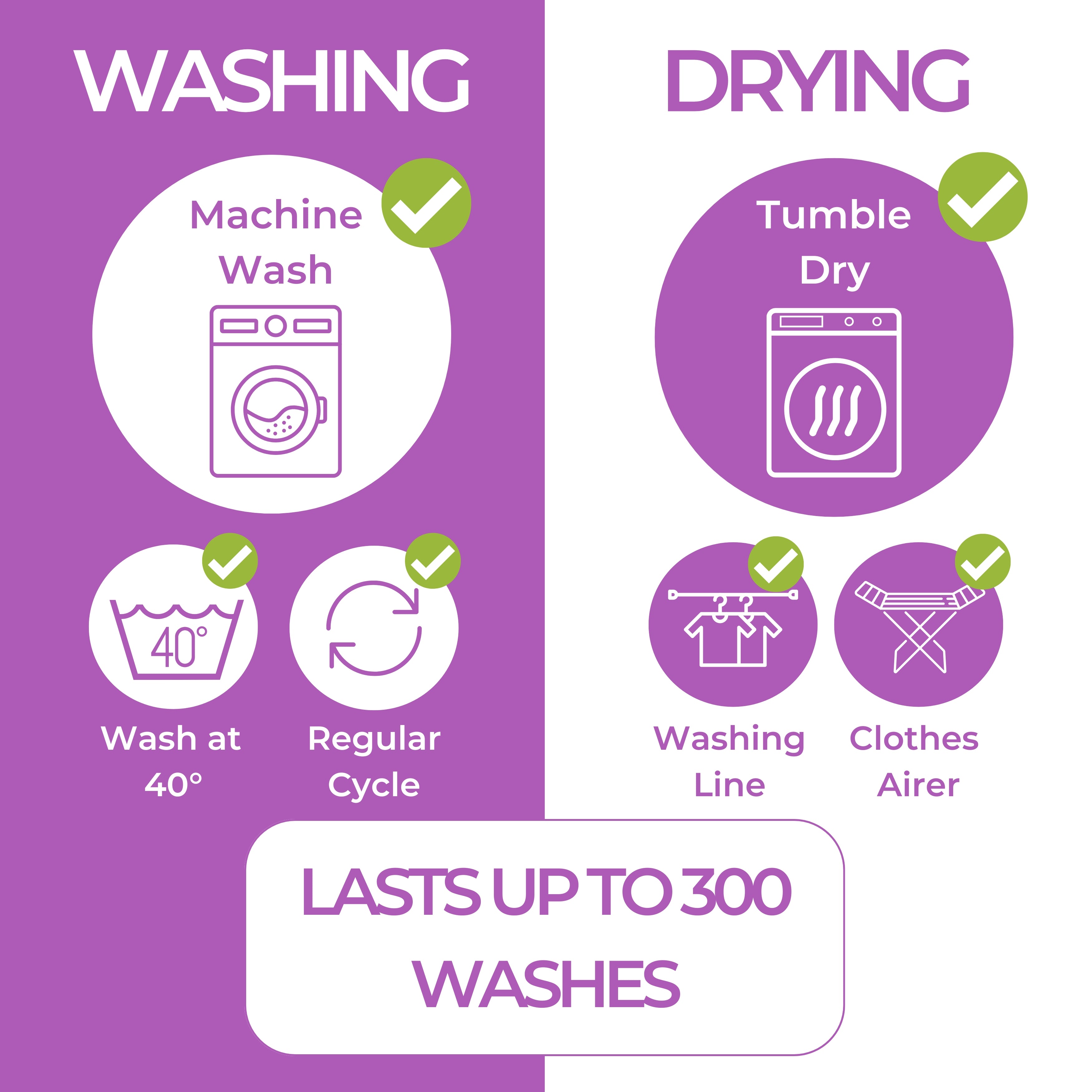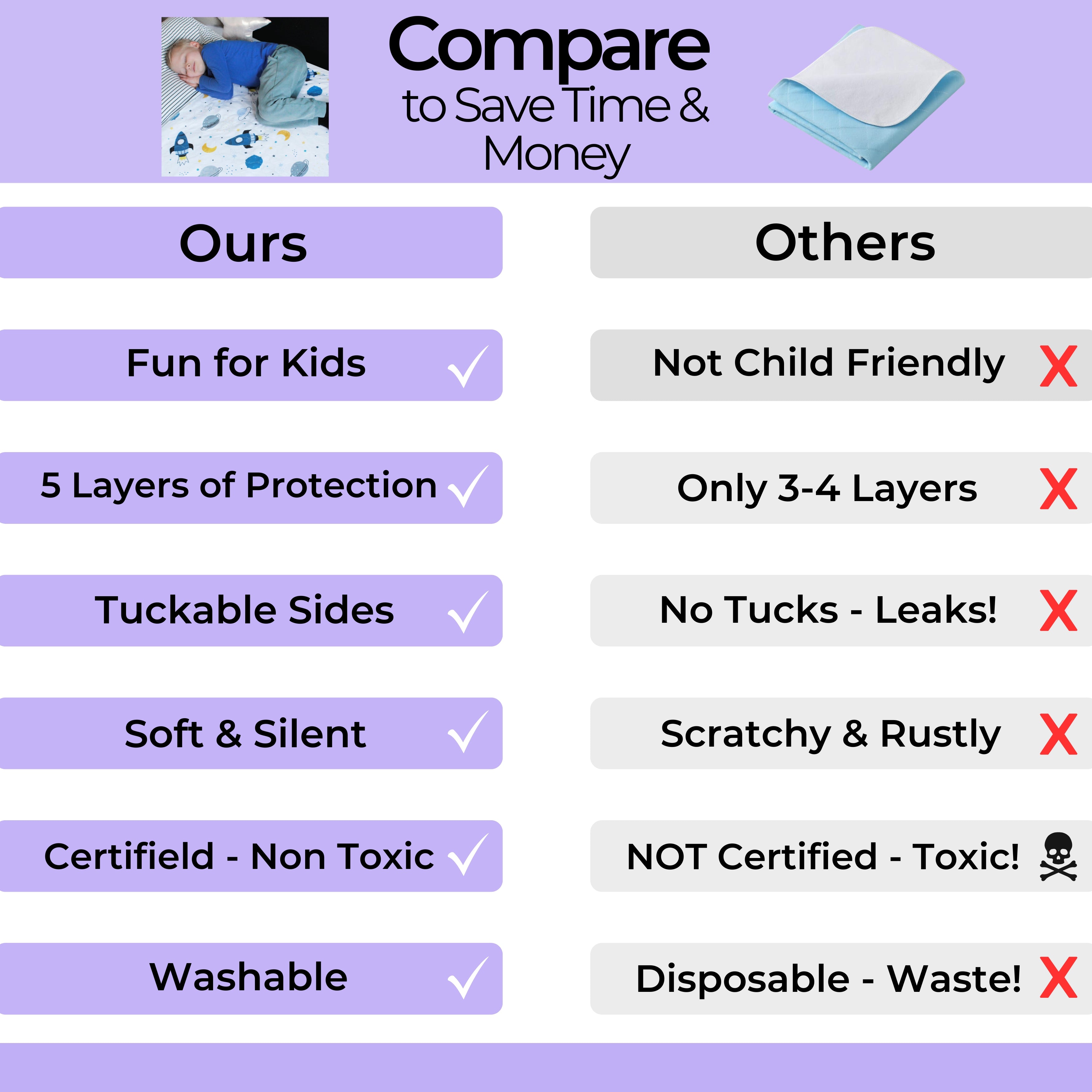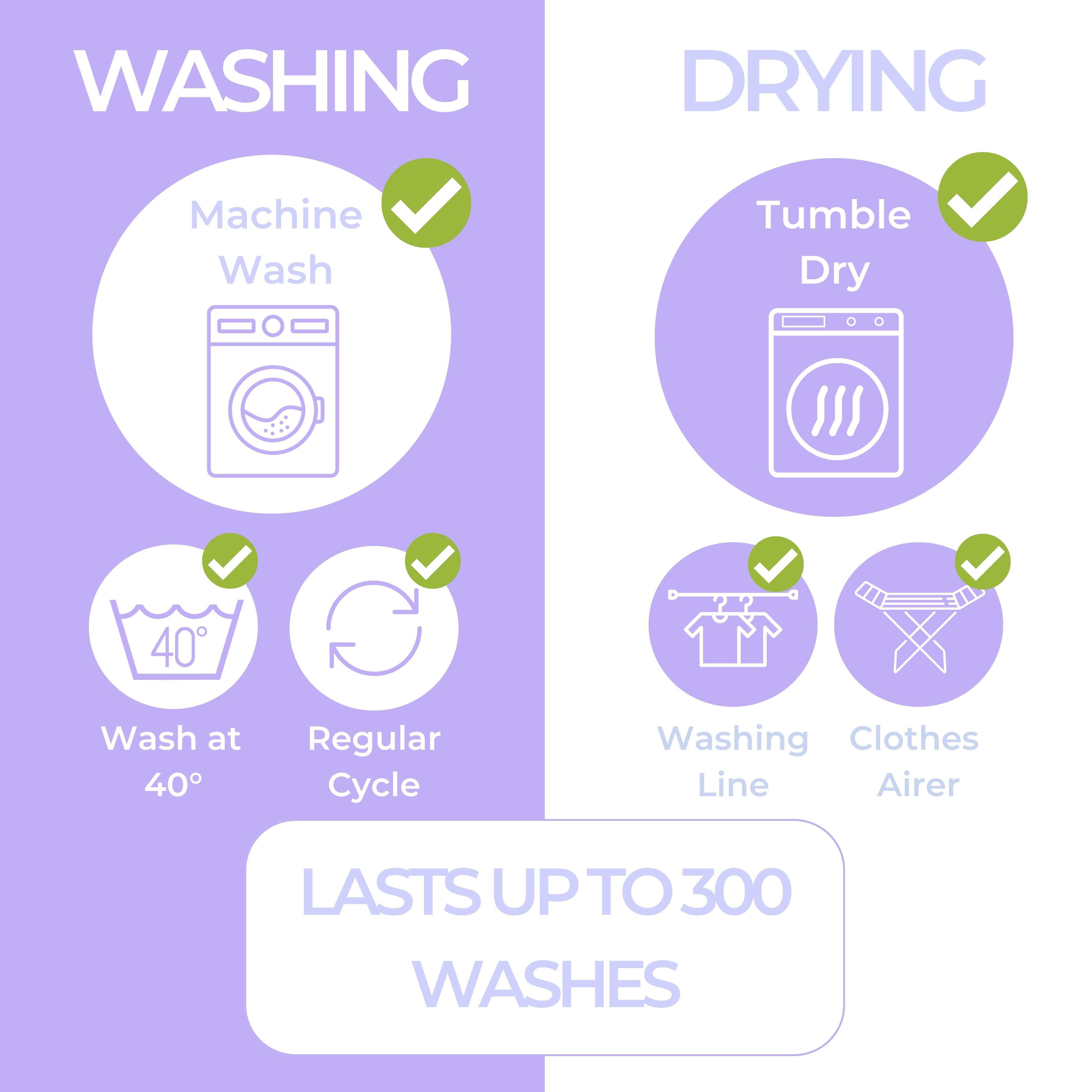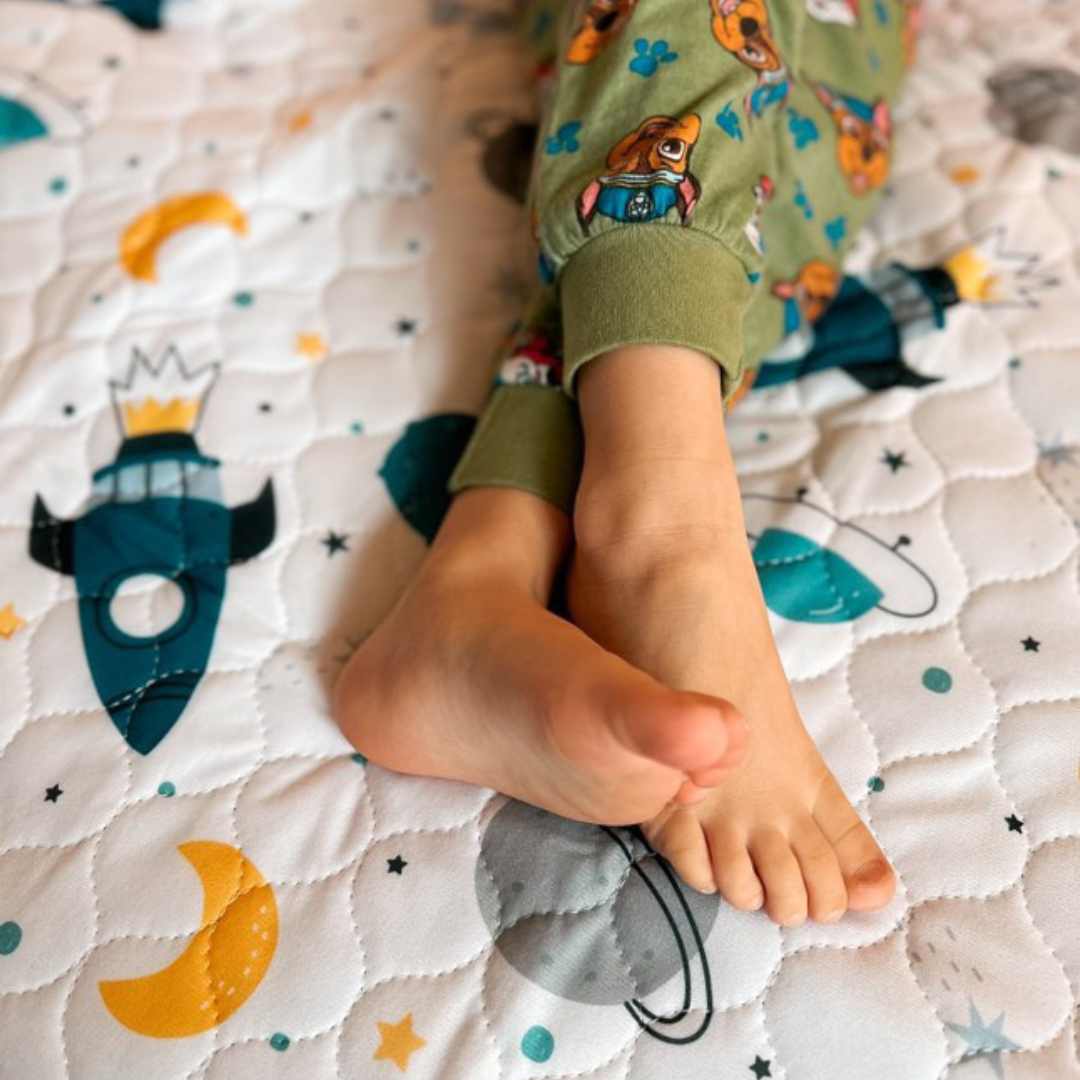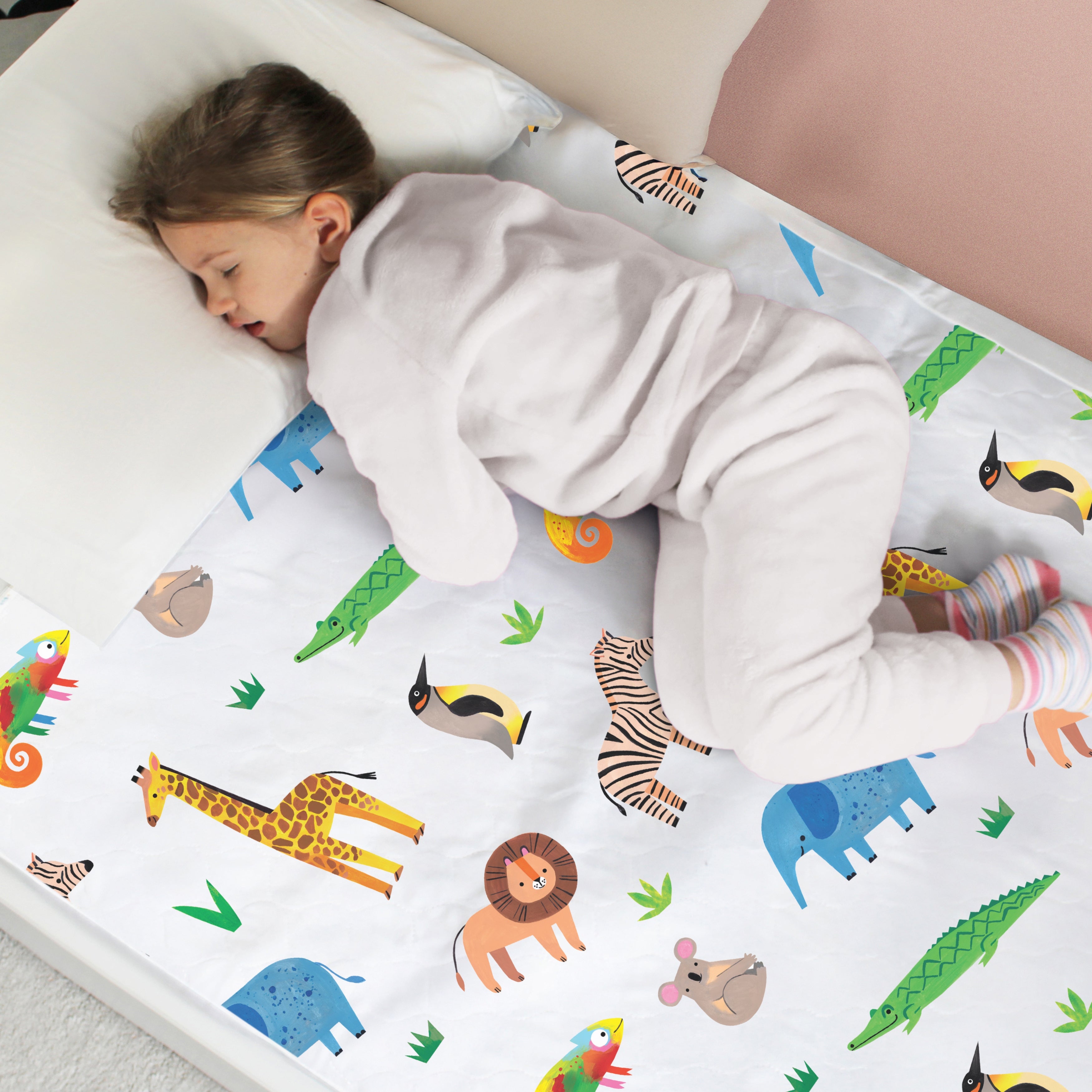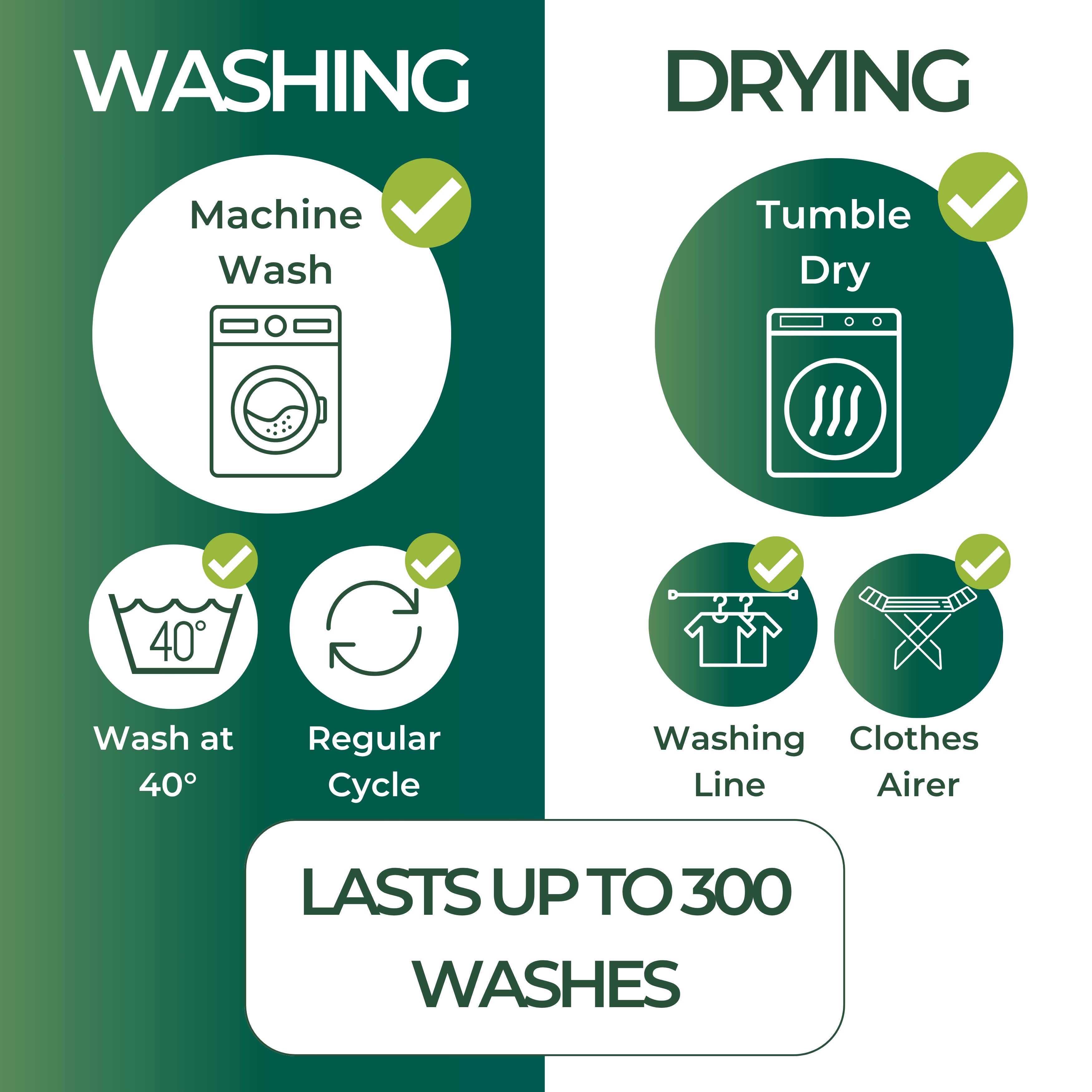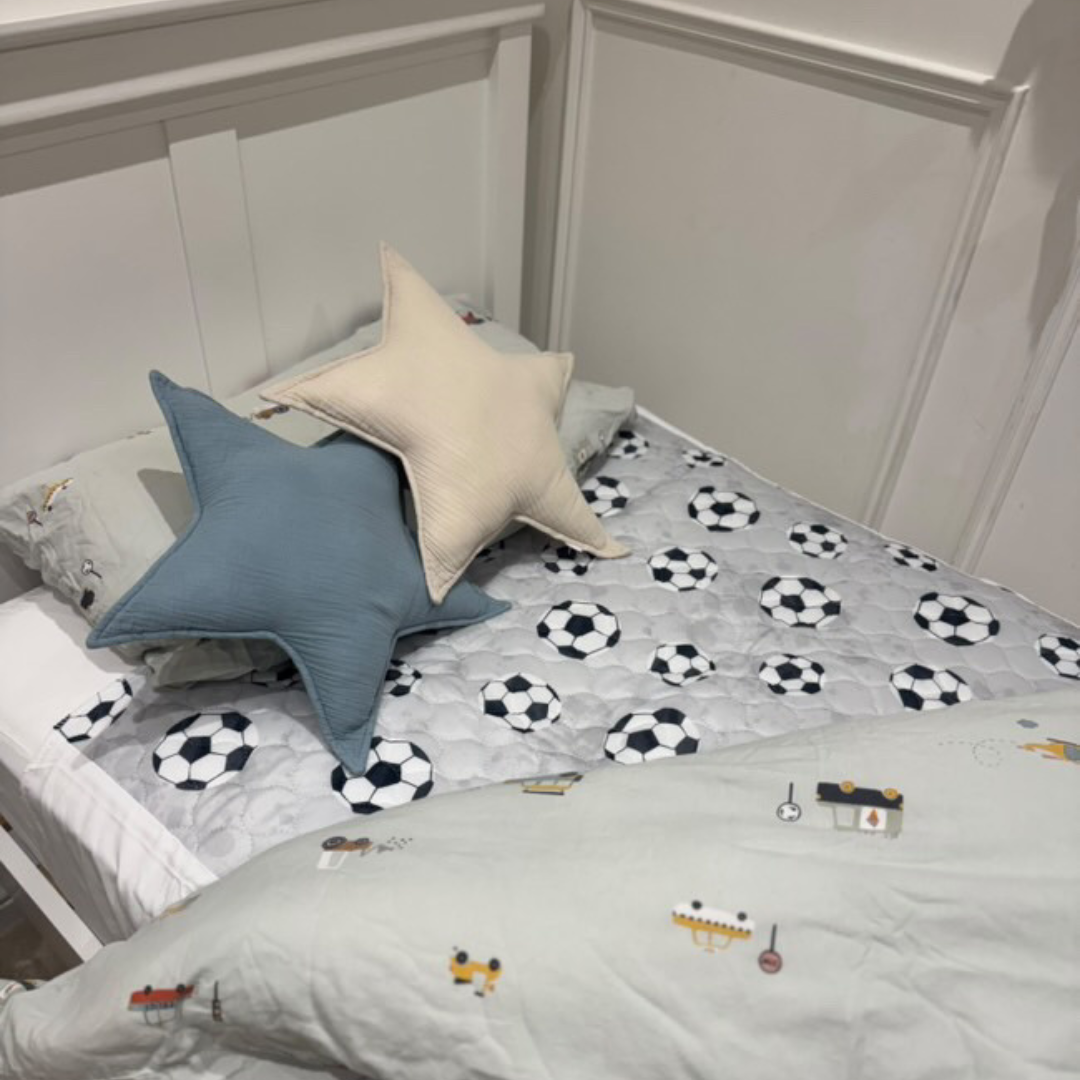I recently did a podcast with Holly Ryan about all things daytime potty training and nighttime potty training. On the podcast, I shared my own experiences from raising my daughters (now 5 and 7). Holly and I discussed our struggles and reflected on what we would have done differently ‘next time.’
Before the podcast, Holly asked her Instagram followers what questions they had about nighttime toilet training and how to nighttime potty train. In this article, I’ll answer some of the key questions as simply as possible.
How do you potty train at night?
One of the most common questions parents ask is: How do you even potty train your child at night? The term nighttime potty training can be a little misleading—it suggests that you are actively doing something at night to train your child to stay dry.
Daytime potty training involves rewards and structured strategies, but nighttime potty training is different. It’s more about supporting your child’s bladder health, drinking habits, and overall development to increase the chances of dryness at night.
Here are some key things you can do to help your child stay dry through the night:
-
Ensure your child has a wee before bed. Boys should also sit down to wee before bed. A double void (weeing twice before bed—once before putting on PJs and again just before sleep) can help ensure the bladder is fully empty.
-
Limit drinks at least an hour before bedtime. A child’s bladder is smaller than an adult’s, and since children sleep longer (an average 4-year-old sleeps for 11.5 hours compared to an adult’s 8), managing liquid intake is crucial.
-
Encourage consistent hydration throughout the day. In Stop Washing the Sheets by Dr. Lane Robson, he explains that dehydration at night is normal, so it’s important for kids to drink regularly during the day. He uses the phrase “Wake up, catch up, and keep up”—wake up and rehydrate, then maintain hydration throughout the day. Ideally, 50% of a child’s daily liquid intake should be consumed before lunch.
-
Good bladder and bowel health matters. Ensuring your child’s bladder is filling and emptying properly can help prevent constipation, which is a common cause of bedwetting.
That said, there are some factors beyond our control when it comes to nighttime dryness.
Developmental Factors in Nighttime Potty Training
Some elements of nighttime dryness are tied to your child’s development rather than training:
-
Vasopressin levels – Vasopressin is a hormone that tells the kidneys to produce less urine at night. By age 5, most children produce enough Vasopressin to stay dry.
-
Bladder size – As children grow, so do their bladders. Their bladder needs to be large enough to hold the urine produced at night.
-
The brain-bladder connection – Your child’s nervous system must be mature enough to wake them when they need a wee.
-
Genetics – If you experienced bedwetting as a child, your child may also be more likely to bed wet.
-
Medical issues – Conditions such as an overactive bladder can affect nighttime dryness. If you suspect this, consult your GP.
When Should a Child Be Dry at Night?
If you’re wondering when to start nighttime potty training, the answer varies. Some kids stay dry at night soon after daytime potty training, while others take months or years. Here are some signs your child may be ready:
-
They are fully daytime potty trained and go on their own without prompting.
-
They wake up dry several nights in a row.
-
They start getting up to use the toilet during the night.
-
They express a desire to stop wearing nighttime nappies (though be mindful—sometimes kids want to ditch nappies before they’re truly ready).
If your child wants to try sleeping without nappies but isn’t quite ready, you can encourage them to wait for their “superpowers” to develop! Our eBook can help with this transition.
How to Prepare for Nighttime Potty Training
Once your child is ready, here are some essentials to make nighttime potty training easier:
-
Waterproof sheets – Protects the mattress from accidents and prevents lingering odours.
-
Spare PJs – Have them ready to avoid a middle-of-the-night laundry scramble.
-
Nightlight – Helps your child feel secure and makes it easier to find their way to the toilet.
-
Potty in the bedroom – A good option for kids hesitant to walk to the bathroom at night.
-
Baby wipes/damp cloths – Useful for quick clean-ups, especially for kids with sensitive skin.
-
Reassurance – Let your child know it’s okay to ask for help if they need to wee at night.
One important thing: Avoid star charts and negative reinforcement. Telling a child they are too old for nappies or comparing them to others can create anxiety. Since nighttime dryness is often outside their control, patience is key.
Nighttime Potty Training by Age
Many parents search for guidance specific to their child’s age, such as nighttime potty training a 4-year-old or nighttime potty training a 5-year-old. The truth is, there’s no set age for nighttime dryness. I’ve spoken to parents whose children still bed wet at ages 7, 8, and 9—it’s more common than people think, but rarely discussed.
Instead of focusing on age, focus on these key nighttime potty training tips:
-
Start only after daytime dryness is fully established.
-
Nighttime dryness depends on development – Your child’s bladder size, Vasopressin levels, and ability to wake up when needed all play a role.
-
Vasopressin production usually increases by age 5, but other factors like constipation or bladder development can delay dryness.
-
According to NICE guidelines, if your child is not dry by age 5, you may consult a GP. While some children naturally take longer, a doctor can check for underlying issues.
This article covers a lot, but if you’d like even more insights, check out my podcast episode with Holly. We go into even more detail about nighttime potty training and how it differs from daytime potty training.
We hope this helps!
Take care,
Catherine x

